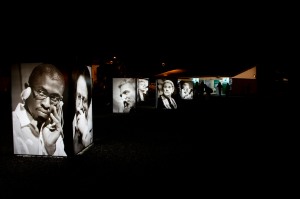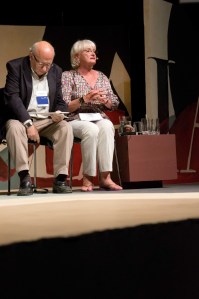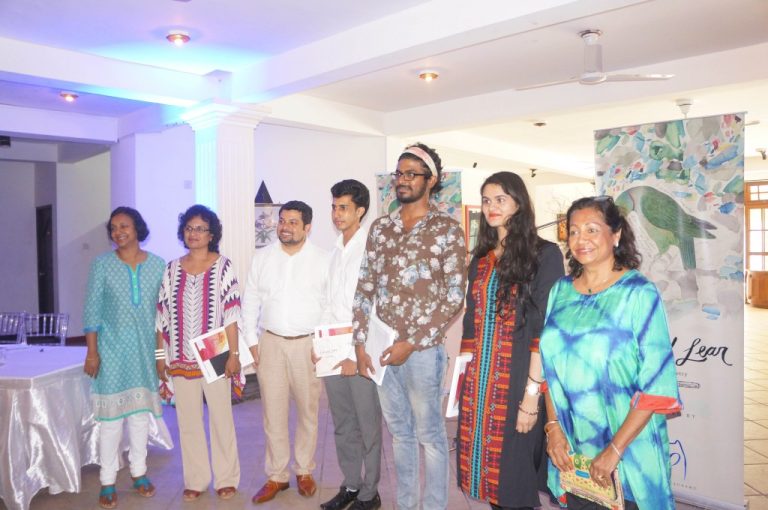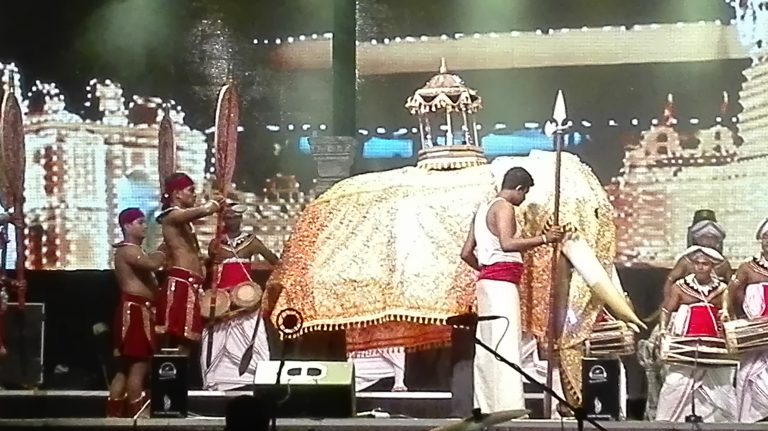Cleaning up my notebook after Paraty
We are now in Rio, in Santa Teresa in the Bianca guest house which overlooks Sugar Loaf mountain. From my window I can see the cable car going from one side of the mountain to another mountain. Having seen the plumbing and the electricity cables hanging precariously all over Brazil, I wonder how that cable line is maintained, never mind I want to go to the top. Brazil certainly has some problems, but its difficult to notice or even focus on them when you look at Brazil through books/ literature, the landscape and music.

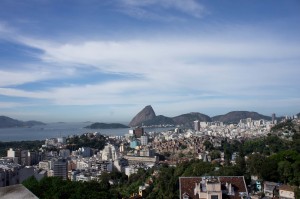
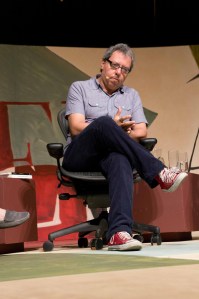
This post is a bit of a scrapbook of quotes and photos I did not have chance to put elsewhere. Every session of the festival started with one of Carlos Drummond de Andrade poems and throughout the festival there were various sessions about his writing. One session started with a video recording of Armanda de Frreitas Filho talking about how Drummond had influenced his poetry. This session continued with a discussion between an academic Eucanaa Ferraz, who at times came across as somewhat self promoting and the scholar and poet Carlito Azevedo who spoke from his heart. Carlito read his moving poem about Drummond. It is an homage to Drummond who he referred to as the Prince. He said it was the first public reading of the poem and it had been three years since he last wrote a poem. He said “poetry is a lens in which he likes to see the world”. Having had a couple of breakdowns, he said, he like Drummond must be present and face the music of life and poetry. He then read Drummond’s poem “An afternoon in May”. Eucanaa Ferraz read three poems about “Love” and observed that what he read, does not seem to be the same work the same poet, who wrote “An afternoon in May”, but that was part of Drummond’s brilliance, he could tap into modern experience, but also the inner experience
Johnathan Franzen makes one sentence statements that often seem unconnected and yet you feel you want to stay with him and wait for the next sentence. When asked a question, he ponders and you could see the interviewer desperately trying to think of an easier question so he would get a quicker answer. Franzen, will not be rushed. “I kept hoping 9/11 would go away”. The relentless politicisation and mediaisationof 9/11 made him think about good and bad in human beings which has nothing to do with politics. “You can have good and bad democrats and good and bad Republicans”. The “novel is not cultural dominant entertainment in the USA. We live in distracting times” “Reading a novel allows me to spend time with myself. To check in with myself” “Novelists are trying to save humanity by entertainment”.
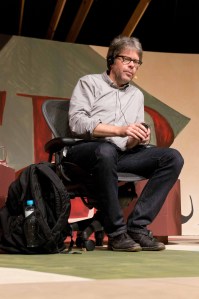
When explaining why he could not talk about his friend David Foster Wallace, he said, “after he died, many people began to try to own him and I had known him differently”. “We could make each other feel bad by writing something good”. Loyalty as you proceed as a writer “puts you in the insane position of being manager of your own life material. The manager in your head says can I use this”. He reached the point during his “bad” marriage of asking himself ” can I show I am a good person by not writing again”. “But how could I be true to myself? How can anyone have a relationship with me if I am not true to myself?” Talking about his book “Freedom” he said “I think the USA and perhaps Brazil are sold a version of freedom”. When asked if he ever felt like giving up writing he said “Not in the last 9 days, 10 days ago I did”.
